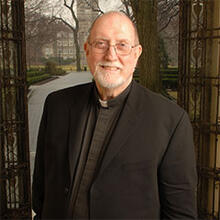From Gods Mouth to Our Ear
Peters pays little attention to the possibility that there were at least three primitive canons of the Hebrew Bible: Babylonian (preserved with the Talmud), Palestinian (partially reflected in the manuscripts of Qumran) and Alexandrian (possibly the ultimate source of the Greek Septuagint). In general, the author stands on more solid scholarly foundations when he deals with the Hebrew and Christian scriptures.
In the books epilogue, Peters insists very clearly on the essential differences between the Hebrew Bible, the New Testament and the Koran. The first and the last have much more in common with each other than either does with the New Testament. But the Torah (the five books of Moses, or Pentateuch) and certain passages from the prophets do not exactly belong to the same genre as the rest of the Hebrew Bible, as Peters notes. The Torah features, along with much primal history of Gods activity in this world, lengthy passages defined as Gods word directly dictated to Moses. The prophets, as well, often assert that they are announcing Gods word in their respective times and places. But the rest of the Hebrew Bible contains much more of the history of those entrusted with that divine word, their liturgical song, proverbial wisdom and imaginative speculation about the end of history.
The New Testa-ment, on the other hand, although it records the words of the Son of God, is less Gods message than about Gods message. As Peters correctly notes, Gods message turned out to be Jesus himself. The New Testament conveys that message in Greek rather than in Aramaic, the language of Jesus, and contains, in addition to the Gospels, the history of the early apostolic community, notable epistolary literature and an apocalyptic concluding work, all centered on the ultimate significance of Jesus the Christ for both Jew and Gentile.
The Koran, by contrast, contains nothing other than what it proclaims itself to be: the very word of God, dictated directly to Muhammad or communicated to him through an angelic messenger. It is difficult, if not impossible, to construct a sequential history of Muhammads prophetic life or experience of revelation without relying on commentary or other extraneous materials. Likewise, as the late Canadian Islamicist Wilfred Cantwell Smith once sagely noted, the recitation and memorization of the Koran has for Muslims some of the same sacred significance that reception of the Eucharist has for Catholics. Those hostile non-Muslims who make mockery of the Koran and its first human recipient, Muhammad, need to keep this analogy in mind.
Peters relies too much on the recent revisionist scholarship emanating from certain non-Muslim European scholars who have made it their business to debunk the standard Muslim account of how the Koran was edited and published in written form during the caliphate of Muhammads third successor, Uthman (644-56 C.E.). The underdeveloped state of Arabic script at that time, as evidenced in inscriptions, would seem to open the Koranic text to many more ambiguities than Muslims traditionally concede. But Peters and the revisionists on whom he relies should remember, as noted earlier, that the memorization of the Koran began with Muhammad himself, and a defective script was possibly sufficient as an aide-mémoire for those who saw an intimate connection between the revealed book (kitab), the book as written (maktub) and the divine decree of predestination: what is written (ma kutiba).
Several errors of fact that have remained in the definitive first edition need correction before a second printing. The Battle of Siffin between the caliph Ali and his opponents, during which arbitration was sought by soldiers on both sides attaching passages from the Koran to their spears, took place in 657 C.E., not 680. Atatürk and the Turkish Grand National Assembly abolished the caliphate in 1924, not 1928. There can be no sura 118 in a Koran of 114 suras.
The Voice, the Word, the Books, with its lavish illustrations and adequate index, will prove very valuable for those teaching an introduction to the Hebrew Bible, the New Testament or the Koran.
This article also appeared in print, under the headline “From Gods Mouth to Our Ear,” in the November 19, 2007, issue.








